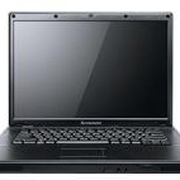With the developing need for employee mobility in the UK workforce mobile devices are becoming increasingly relied upon for both small and larger businesses - with eight out of ten British business people being "tooled" up for mobile working according to research from Vodafone. The snapshot survey conducted during UK Business Week also found that 42% of respondents are now using mobile data technologies such as Wi-Fi, mobile datacards and PDA's, with Chief Executives as the group with the most gadgets. Some 83% use a notebook PC, 48% use a PDA and 35% use a Wi-Fi or a mobile datacard.
Across all businesses the most obvious device is the mobile phone, which is almost universally used, but mobility doesn't end there. Research carried out by ZDNet.co.uk and Rhetorik has shown that the single mobile device respondents found most useful is the notebook PC with mobile connectivity either through an external card or Built-in Mobile Broadband. With both technologies already widely deployed the outlook on demand for notebook PCs is set to increase over the next two years. Alongside mobile phones and notebook PCs it is important to not forget the use of PDA's as being significant for the mobile workforce. With ever increasing technological developments both with the actual mobile devices themselves and the communications networks there is a rapidly growing market with new business challenges.
When the decision to increase employee mobility is made many factors have to be taken into consideration, the first being the choice of which device would be most beneficial. Mobile phones aside, the ZDNet.co.uk and Rhetorik research indicates that notebook PCs have key benefits over other mobile devices. The main advantages in using a notebook PC over handheld mobile devices were reported to be; large display with the ability to work on detailed documents, a full-sized keyboard and the ability to access MS Office applications. However, it was also discovered that the ability to handle attachments, have greater storage and having better web application and access were also important.
The thought process now has to be taken one step further as SMB users are highly mobile, if the decision of notebook PCs as the key mobile device is made there is then the choice of Built-in Mobile Broadband versus the external card. Research shows that Built-in Mobile Broadband has higher performance than Mobile Broadband through an external card, in a recent report Gartner found that 3G service offerings are becoming sufficiently stable to enable an embedded notebook PC solution to last three years without an upgrade.
Gartner found that an internal 3G module will perform significantly better than external solutions for signal strength, with embedded modules performing better over external cards and handsets. This is due to the fact that notebook PC manufacturers have designed multiple antenna systems that provide superior signal propagation. OEM's also report seeing better battery life with embedded cards. WWAN - (Gartner 28 April 2008 - Changes Coming for Embedded 3G in Notebook PCs).
The inclusion of Built-in Mobile Broadband or external card with your notebook PC will help with wireless connectivity. Technical features of mobile devices have the largest potential for growth within businesses with the need for high-speed data communications and internet access. The technology in this area has come on in leaps and bounds in the past couple of years, from the built-in technology within notebook PCs such as Intel processor technology and proprietary software from various notebook PC manufacturers to increased network coverage across the UK
Notebook PCs also help with other key business issues that arise from increased employee mobility such as the problem of security. Many businesses are not fully prepared for the security risks that accompany mobile working. Ideally, mobile workers want to log in remotely to the network, replicating all of the access privileges found on their office local area network (LAN). However, strong perimeters and password systems are not adequate measures when it comes to remote security, and can be easily bypassed with password-cracking software. The built-in technology within certain notebook PCs is improving to help combat security issue's from hackers, however it is also key to ensure network security as this will unlock the key to secure mobile working.
In conclusion it really depends on the specific business requirements but it is clear that making PC purchase decisions is no longer as simple as it once was with mobility being ever more critical. With notebook PC manufacturers introducing proprietary software the PC is no longer be considered just a commodity to any business.
For more information about Lenovo click here






